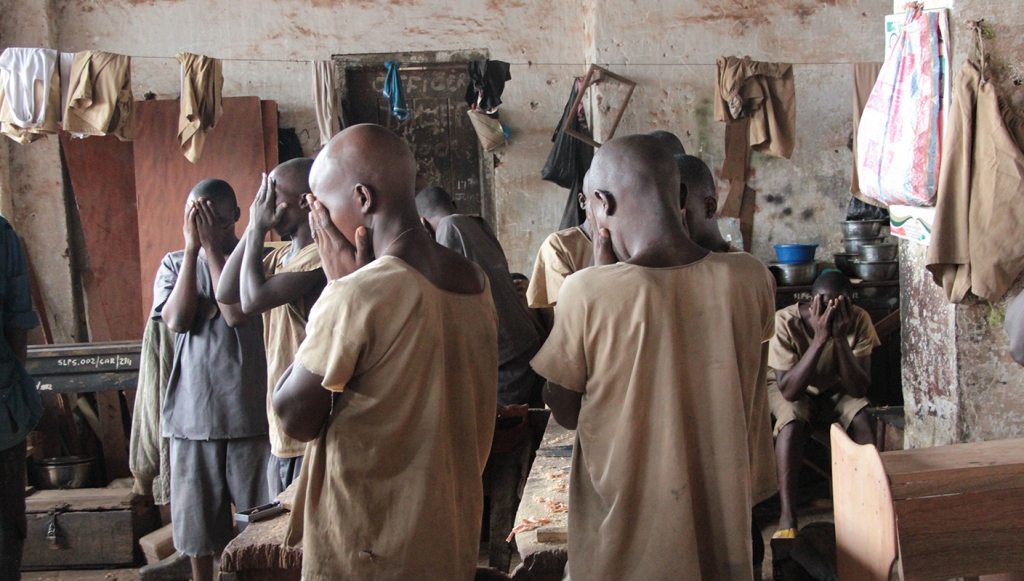SIERRA LEONE: Filmmakers Raúl de la Fuente and Amaia Remírez debut film “Hell” focused on one youth’s story of redemption in Pademba Road Prison

(MissionNewswire) Filmmakers Raúl de la Fuente and Amaia Remírez recently debuted their film “Hell” at the San Sebastián International Film Festival in Spain. The film, which is produced by Kanaki Films, tells the story of Chennu, a street child from Freetown, Sierra Leone. At the age of 15, he entered the adult Pademba Road Prison in the country’s capital. The film shares Chennu’s journey and how he changed his life.
“We wanted to share the stories of those people who are dying forgotten in prison in inhuman conditions,” explains Remírez. “Chennu is a very powerful character. After spending four years in prison, he manages to change his life and is now dedicated to helping prisoners. It is a complete redemption and a total overcoming of the difficulties experienced in prison.”
The short film was produced thanks to the support of Don Bosco Fambul Center, one of the country’s leading child-welfare organizations, and Salesian Missions of Madrid. Remírez adds, “With this short film we also wanted to give visibility to the work in the prison that the Salesians are doing, especially with minors and the sick.”
Prisons in Sierra Leone face overcrowding as well as lack vital sanitation and health care. Inmates often die from overcrowding, illness and violence. All too often, minors are detained for petty crimes and end up falling prey to prison violence, giving them little hope for the future upon their release. The Pademba Road Prison, the country’s largest detention facility, was designed for 324 detainees but actually has more than 1,300 inmates. Overcrowding and a lack of clean water and proper hygiene, in addition to a lack of medical care, contribute to the persistent spread of disease and illness among the inmates which have led to deaths.
Food is scarce in the prison with the only substantial meal of the day consisting of cassava leaves and rice. Water distribution is inconsistent and incarcerated men and boys sometimes do not receive the daily allocation of one-third of a liter of water. Younger, smaller members of the prison’s population suffer the most. Those with money are able to buy additional food and water but most inmates at Pademba are poor or do not receive visits from people who could give them food or money.
Salesian missionaries with Don Bosco Fambul provide food and water for young inmates while also offering counseling services, medical assistance and therapy to ensure inmates are mentally fit when their prison terms end. Through their prison program, missionaries reach 250 inmates.
In addition to “Hell”, Kanaki Films has produced other documentaries for Salesian Missions in Spain to give visibility to the work being done in developing countries. The company has produced “Love” focused on work for young women who have been victims of human trafficking and sexual abuse in Sierra Leone and “30,000” set in the Ivory Coast. Upcoming, the company will release “Palabek. Refuge of Hope” focused on work with refugees in Uganda.
The national premiere of “Hell” will take place at the end of October at the Seminci Valladolid International Film Festival in the competitive short films section “Story Time.”
###
Sources:
ANS Photo (usage permissions and guidelines must be requested from ANS)
ANS – Sierra Leone – “Hell” by Chennu, in Freetown prison, in 22 minutes of film
Salesian Missions – Sierra Leone





